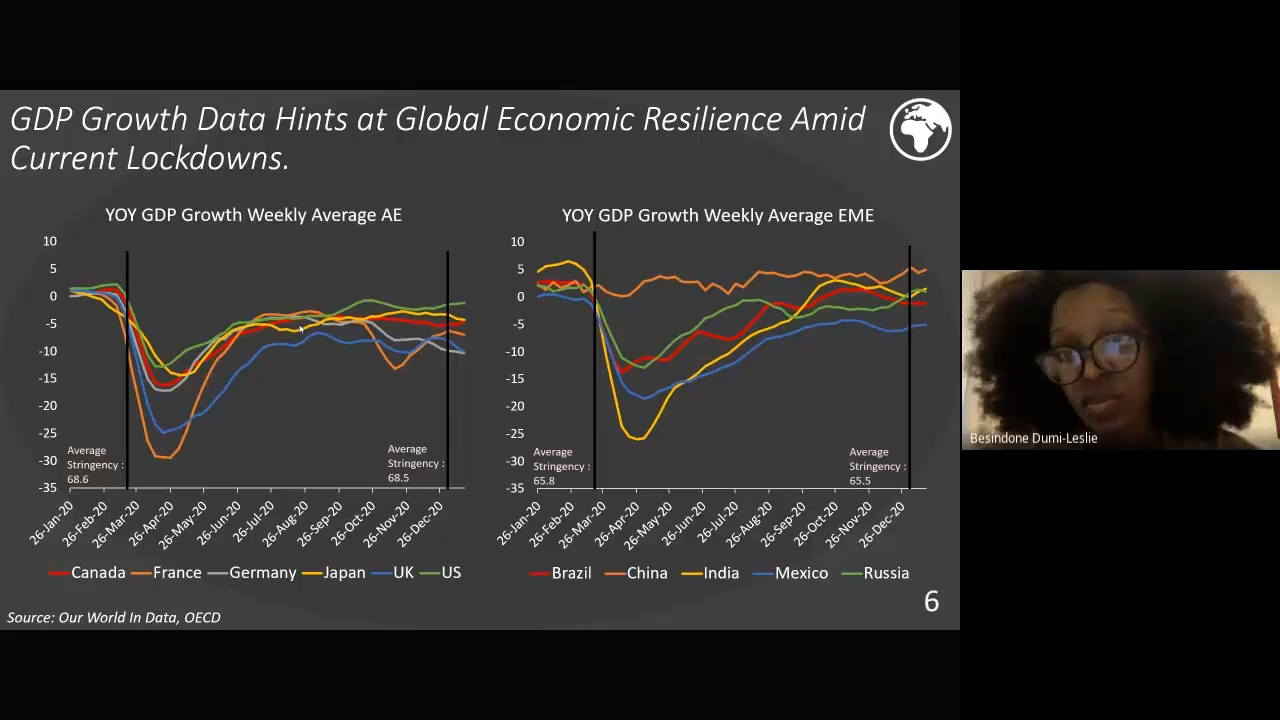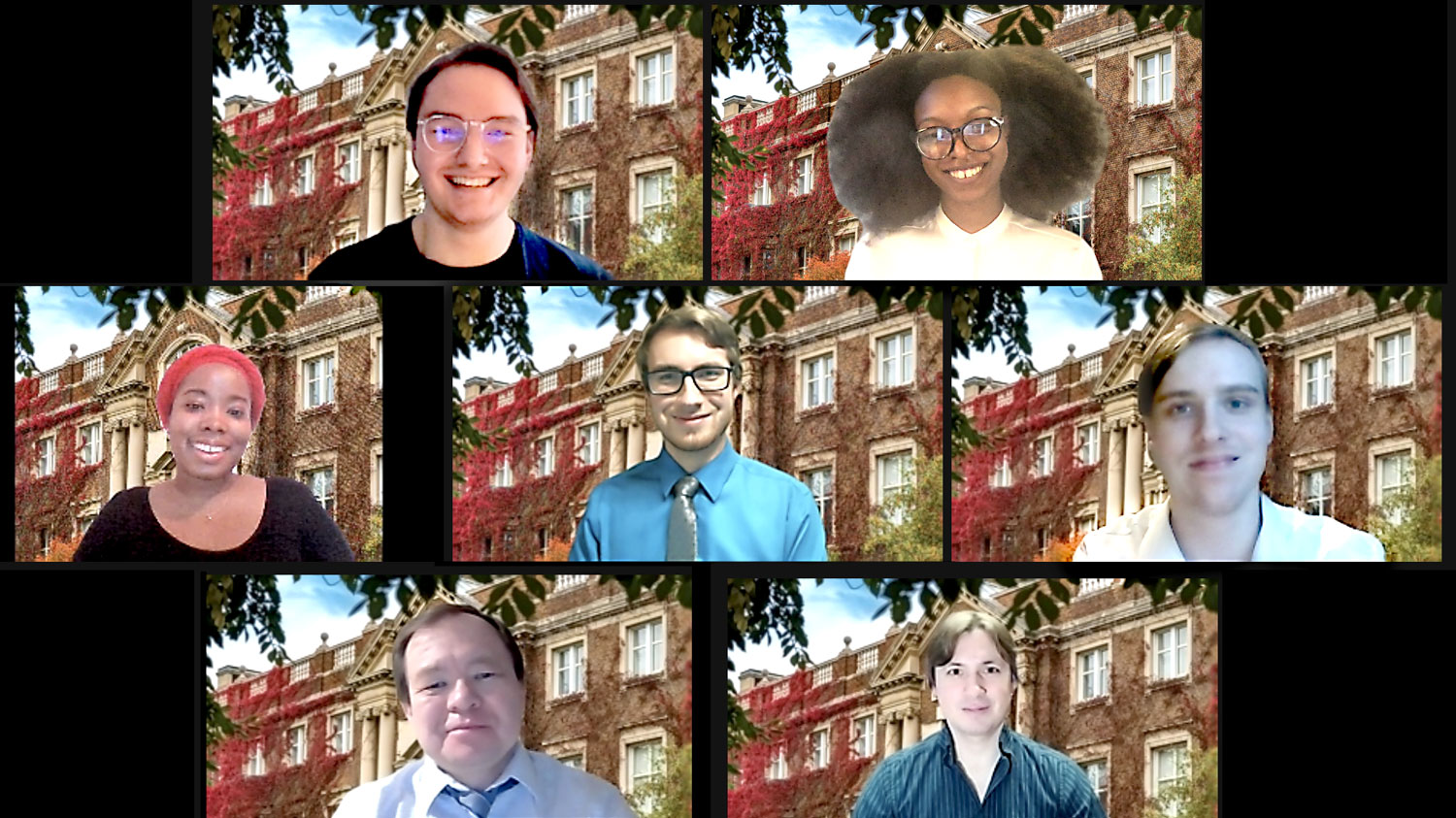A group of fourth-year University of Alberta economics majors has won a national competition on monetary policy held by the Bank of Canada.
The bank’s annual Governor’s Challenge requires competitors to simulate the role of advisers to the bank’s governing council, analyzing current economic conditions in the country and making recommendations to senior central bank officials.
Consisting of Austin Ference, Besindone Dumi-Leslie, Joseph Hoekstra, Robyn Taylor and Sam Grootelaar, the U of A team prevailed over others from the University of Toronto, Carleton University, the University of Ottawa and Wilfrid Laurier University. It was their fifth appearance at the six-year-old competition, and their third as finalists.
“I was thoroughly impressed with the calibre of presentations made by this next generation of bright economic minds,” said Bank of Canada Governor Tiff Macklem.
“You have so much to offer our country and I hope you consider harnessing your enthusiasm and dedication into a career that contributes to the economic well-being of Canadians.”
A thorny wrinkle in this year’s event was accounting for the economic fallout from the pandemic. But in the end, that may be just what propelled the U of A team over the finish line, according to the team’s forecaster, Austin Ference.
“Without the pandemic, I'm not sure if we would have won or reached the level we did,” said Ference, who calculated how economic recovery would coincide with a vaccination rollout, as well as a potential second lockdown.
“It’s so different from anything that's been experienced before in quite some time,” added Robyn Taylor, who was responsible for analyzing current economic conditions for the team.
“We had to comment on how the pandemic will affect not only Canada's economy, but economic recovery everywhere—midterm and long term.”

The group concluded that the country is on the way to “a protracted recovery,” said Taylor. “It will depend on how long the virus is here to stay and how long restrictions stay in place.”
Canada’s unemployment rate is likely to remain high for quite some time, she said, as businesses and consumers recover.
Most striking in their analysis, she added, were the disproportionate impacts of the pandemic on low-income workers and those in specific industries, such as service and recreation.
The team’s bottom-line recommendation to the bank?
“As long as the policy rate is kept consistent, we will recover in the long term,” said Taylor. The Bank of Canada’s policy interest rate has remained at 0.25 per cent since last March.
Judges for the final round were Eric Santor and Sharon Kozicki, advisers to the Bank of Canada governor, and Sylvain Leduc, executive vice-president and director of economic research with the Federal Reserve Bank of San Francisco.
In a normal year, five finalists from a field of more than 20 universities would present at the bank in Ottawa after being selected in November. This year, the students had to settle for presenting from home.
“It's a shame that with the pandemic none of that could happen,” said Ference. “It was definitely weird having the conference from my basement, but the bank’s governor said he was conducting monetary policy from his basement, so I suppose that's just the new normal now.”
The U of A team members were culled from a class in macroeconomic policy taught by Malik Shukayev—formerly a principal researcher with the Bank of Canada and now with the Department of Economics—who coached the group along with economics lecturer Max Sties, who helped with forecasting models and delivery skills.
“It’s a bit beyond what undergraduate students typically cover in 400-level classes,” said Shukayev. “We had to show them some tricks of the trade and what they should be looking for.”
Given its level of difficulty, it’s not uncommon for students to spend the bulk of their study time on Shukayev’s course. For those on a Governor’s Challenge team, however, that time investment can be daunting.
“I was definitely the person spending 80 per cent of my time on the Governor’s Challenge and on the class—it was definitely a lot of work,” said Taylor.

“But it was also such a rewarding experience—I really wanted to get a handle on these skills and put them in my back pocket for my future, hopefully, as an economist.”
This was Sties’ fourth year coaching the team. After repeated attempts, he admitted it was a relief to finally finish first.
“It always feels good to win against teams like the University of Toronto or UBC,” he said. “To be among the top universities is a great feeling.”